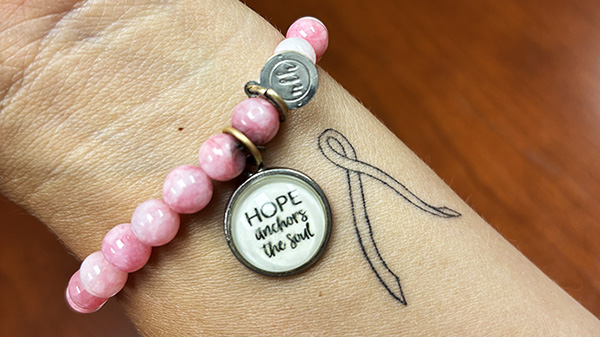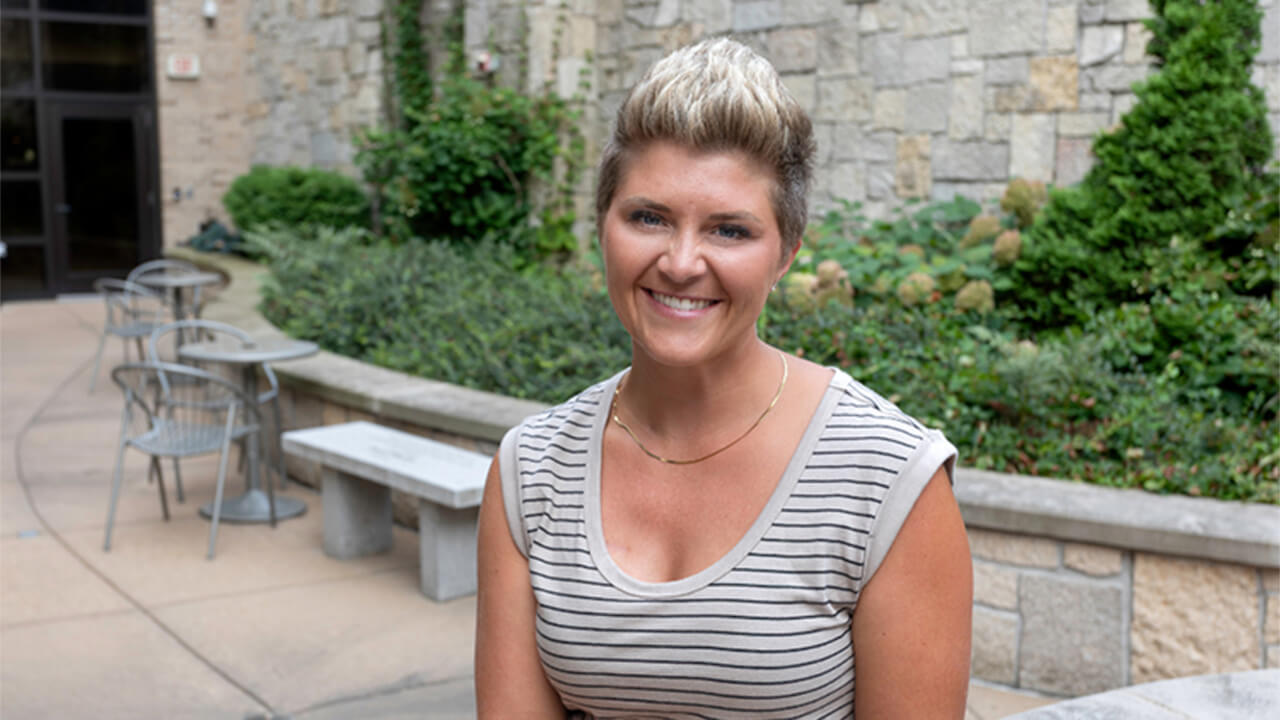Amelia's story
Young mother survives breast cancer one step at a time
When Amelia was diagnosed with stage two triple negative breast cancer at age 32, her youngest daughter was just six months old. A BRCA1 gene carrier, she’d known she was at higher risk – but she never expected the timing.“I think my intuition as a mother took over,” the Chilton resident recalled. “Something didn’t feel right, and I’m so glad I listened to that voice.”
With three little girls and a loving husband, Amelia says there was no question why she fought so hard.
“People would always ask, ‘How are you doing this?’ I’m doing it because of them. They needed me as much as I needed them. They pulled me out of bed whether I wanted to or not, giving me that higher purpose and greater focus.”
A Second Opinion Changes the Game Plan
Her journey began with a difficult first consultation elsewhere, which left her feeling impatient and frustrated. A trusted friend encouraged Amelia to get a second opinion at HSHS St. Vincent Hospital Cancer Centers.“It felt refreshing. The people there were in control, very knowledgeable and knew exactly what the game plan was going to be,” she said. “That structure helped me get focused. It was game time.”
Over the next year, Amelia’s treatment plan included 24 weekly chemotherapy treatments – including four infusions of the “Red Devil” chemo – a full year of immunotherapy, a bilateral mastectomy with reconstruction, and 25 rounds of radiation. She worked throughout treatment, holding onto the normalcy that fueled her.
“Every week of chemo, someone different came with me,” she said. “My cousin, my mother-in-law, my husband’s grandparents, my best friends – they all took days off to take me, and we got to spend six hours together. That support carried me through.”
Her friends and family also supported their family at home, organizing a meal train, watching the girls and stepping in whenever Amelia and her husband needed help.
“I just felt like we were surviving at that point,” she recalled. “I was probably doing way too much, now that I look back. But it took a village.”
She credits her care team for making the treatment experience as positive as possible.
“They treated me with such grace, care and tenderness. I was literally trusting them with my life and now they’re family to me,” she says, naming Dr. Brian Burnette, physician assistant Megan Leon, her nurses, and other team members who left a lasting impression.
“Above all else, it’s the people here who made this experience ‘enjoyable,’ if those are even two things that should be put together,” she added with a laugh, putting “enjoyable” in air quotes.
Now cancer free, Amelia admits the months after treatment were harder than she expected.
“People think when you’re going through treatment is when it’s the hardest. I thought the aftermath of treatment was hardest, because there’s a societal expectation to jump right back into it - and I didn’t. I felt so overwhelmed,” she explained. “You have to figure out your new normal and adjust.”
The Power of a Positive Mindset Through Cancer
For anyone newly diagnosed, Amelia’s advice is simple.“Take a deep breath. Surround yourself with encouraging, loving and supportive people. And take one step at a time,” she shared, tearing up. “If you look too far ahead, it can be overwhelming. Stay focused on the now.”
Most of all, she believes that keeping a strong mindset is the key.
“The mind is the most powerful thing in the diagnosis. If your mind is in a good place, your body will respond and heal. When your mind is bad, the rest is bad—but if your mind is good, the rest will follow.”
Today, Amelia wears a pink beaded bracelet she bought at a boutique in her hometown to support a worker who faced a similar diagnosis at the same time.

“I’ve never taken it off since. It says, ‘HOPE anchors the soul,’ and I believe that to be true,” she reflected. “You might find yourself saying ‘I hope’ a lot, but those things can come true, right?”
The bracelet, along with a tattoo she’s planning to add to, are reminders of her journey, her strength and the people who helped her through.
“Cancer changes you, for good and bad,” she said. “I think if you own it and embrace it, it will go so much better. And you’ll realize you’re stronger than you think.”
Click here for more information about the HSHS St. Vincent Hospital Cancer Centers.
